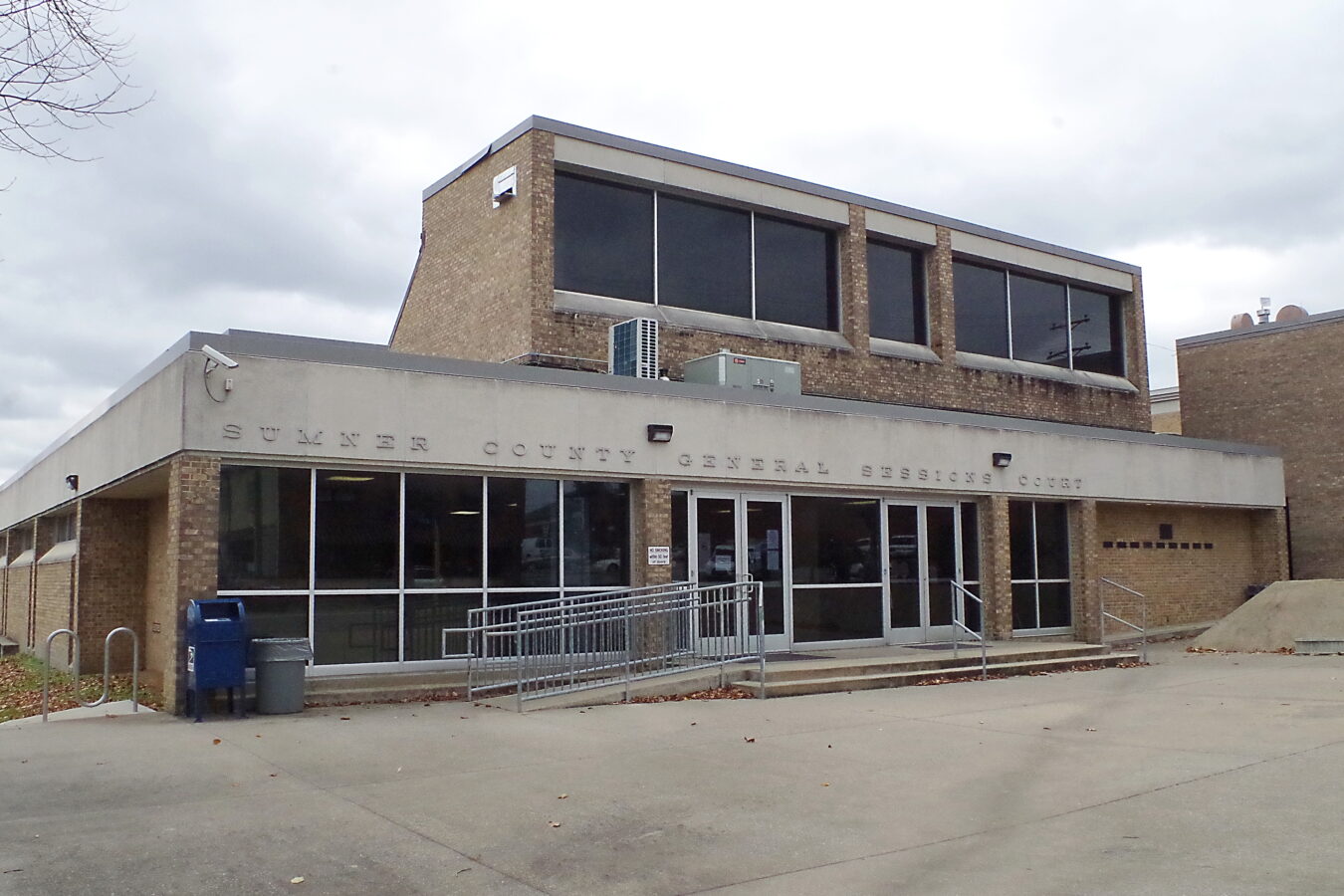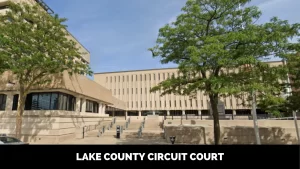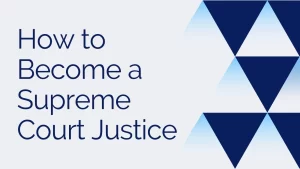Sumner County Criminal Court
For those charged with a crime in Sumner County, Tennessee, the Sumner County Criminal Court plays a central role in the legal process. This court handles serious criminal cases like felonies and misdemeanors that occur within the county. Facing criminal charges can be a stressful and confusing time. Understanding the criminal court, its role, and what to expect can help make the process less intimidating. This guide provides an overview of Sumner County Criminal Court and the criminal trial process, plus resources for finding legal help.
Contact Information
- Address: 100 Public Square, PO Box 549 Gallatin, TN 37066
- Phone: 615-451-3209
Fax: 615-451-6072 - Website: https://www.sumnercourts.com/courts/criminal-court/overview
- Facebook: @SumnerCountyCriminalCourt
- Twitter: @SumnerCourt
Overview of Sumner County Criminal Court
The Sumner County Criminal Court, located in Gallatin, has jurisdiction over criminal cases brought within the county. Its purpose is to determine if those accused of crimes are guilty or not guilty based on the evidence, and deliver fair punishment if warranted.
The court facilities contain courtrooms, judge’s chambers, a clerk’s office, and other support services. There are several elected Criminal Court judges who preside over cases on a rotating basis. They are assisted by the District Attorney’s office who prosecutes cases on behalf of the state of Tennessee.
Types of Cases Heard
Sumner County Criminal Court handles the following types of criminal cases:
- Felony Cases: Serious crimes like murder, rape, robbery, aggravated assault, and drug trafficking. Felonies carry over 1 year in prison.
- Misdemeanor Cases: Less serious crimes like simple assault, petty theft, DUI, and vandalism. Misdemeanors have lighter punishments.
- Traffic Violations: Speeding, reckless driving, driving without a license. May be a misdemeanor or infraction based on severity.
If the charges are minor like a traffic ticket, defendants can choose to handle it in General Sessions Court. But felonies and serious misdemeanors go straight to Criminal Court.
The Criminal Trial Process
If arrested for a crime in Sumner County, here is the general process for how a criminal case proceeds through the justice system:
Arrest and Booking
Suspects are arrested by police, booked at the jail, fingerprinted, and may have bail set. Defendants are formally notified of their charges during booking.
Initial Appearance and Arraignment
An initial appearance before a judge is held within 48 hours of arrest. At the arraignment, charges are read, bail can be adjusted, and a plea is entered. Pleas are typically “not guilty” at this stage.
Pre-Trial Motions and Discovery
The pre-trial phase involves fact finding, evidence sharing between the prosecution and defense (discovery), and filing of motions objecting to evidence or requesting dismissal.
Plea Bargaining
Many cases are resolved through plea bargains between the defense and prosecution to avoid trial. Defendants plead guilty in return for reduced charges or lighter sentencing.
Trial
If no plea deal is reached, the case goes to a bench trial before a judge or jury trial. Both sides present evidence and make arguments to support their case. The verdict is either guilty or not guilty on each charge.
Sentencing
If found guilty, the judge determines the sentence and penalties, based on factors like criminal history. Punishments may involve both fines and incarceration.
Going to Court
Attending court can be intimidating, especially for those facing criminal prosecution. But knowing what to expect and following proper decorum can help reduce anxiety.
What to Expect in Court
- Arrive early and locate your courtroom. Turn off phones and remove hats.
- Dress respectfully – no shorts, hats, sunglasses, or flip flops.
- Check the docket posted outside the courtroom for your case listing.
- Sit quietly in the gallery until your case is called.
- Approach the podium when instructed and speak only when addressed by the judge.
- Refer to the judge as “Your Honor” and answer questions directly and honestly.
Courtroom Conduct and Etiquette
Making a good impression in court can influence rulings in your favor. Be sure to:
- Be polite, respectful, and deferential to the judge.
- Stand when the judge enters and exits.
- Do not interrupt the judge or other parties.
- Avoid confrontation or outbursts – let your lawyer do the arguing.
Following proper courtroom conduct shows you take the proceedings seriously.
Legal Resources
Navigating the criminal justice system is complex, but resources are available to help:
Finding a Lawyer
Those facing criminal prosecution are entitled to legal representation. Hiring a criminal defense lawyer early on is recommended for felony charges. Consider a public defender if you cannot afford private counsel.
Legal Aid and Assistance
Legal aid organizations like the Legal Aid Society of Middle Tennessee provide free legal help for low-income individuals. Visit their site to learn more.
Navigating the System
The Sumner County Criminal Court Clerk’s office can answer basic questions about your case status, hearings, and paperwork. The Tennessee Courts Self-Help Center also has information on navigating the system.
Don’t hesitate to utilize available resources to ensure your rights are protected throughout the legal process.
Online Resources for the Sumner County Criminal Court
The Sumner County Criminal Court in Tennessee offers a variety of online resources that can be useful for legal matters and accessing information. This article provides an overview of the different types of online tools available through the Sumner County Criminal Court or other Tennessee state court websites.
The online options range from searching court records and case information to obtaining forms and making payments. There are also extensive self-help legal resources, access to laws, and assistance finding legal aid. Using these online resources can save time and provide helpful information for those involved with the courts in Sumner County.
Searching Court Records
When you need to look up information on past or current Sumner County court cases, there are online options to search records.
Searching Case Records Online
The Sumner County website allows you to search for Circuit, Criminal, and General Sessions court records using an online case records search. This can be helpful for finding details on both civil and criminal matters. You can search by party name to pull up any cases associated with that party.
Viewing Dockets, Calendars, Opinions
For upcoming Sumner County Criminal Court cases, you can view court dockets listed by date online. This lets you see scheduled cases on a certain day. Published opinions and orders for criminal cases can also be searched using the Tennessee Attorney General’s website.
Getting Court Forms and Information
If you need to access local court forms or rules, there are online resources for that too.
Downloading Local Court Forms
The Sumner County Criminal Court website has downloadable PDF forms available, such as waiver of appearance forms and affidavits of indigency. These local forms can be useful for criminal matters in Sumner County.
Finding Court Rules and Procedures
The Tennessee Courts website has a section where you can view or search the statewide Rules of Criminal Procedure, Rules of Evidence, and other court rules. You can educate yourself on the proper procedures and rules for various legal matters.
Making Payments
For some court cases like traffic tickets, you may need to pay fines, fees, or other costs. Sumner County offers an online payment system for this.
Paying Fees, Fines, Costs Online
You can pay Sumner County Circuit and Criminal Court fines, fees, costs, and restitution online if you have a case number. This can be more convenient than mailing in payments or paying in person.
Self-Help and General Resources
Beyond searching records and forms, there are extensive self-help legal resources available online as well. These are helpful for research and finding assistance.
Getting Legal Information
Websites like Justice for All and the Self Help Center have legal information for non-lawyers on topics like family law, small claims, wills, and more. This can help you learn about different legal processes and terminology.
Researching Laws
The Tennessee Code is available to search online, so you can look up the exact text of state laws and statutes. This is useful when you need to read and understand the law.
Finding Lawyers and Aid
There are options like the Tennessee Bar Association directory to find lawyer contact information. Those needing legal aid can use resources like Legal Aid Society of Middle Tennessee to see if they qualify for free assistance.
Conclusion
Facing criminal charges in Sumner County can be daunting, but having an overview of the county’s criminal court procedures makes the process less intimidating. Understanding the court process, seeking proper legal counsel, and adhering to courtroom formalities can all help lead to the best outcome in your case. Don’t be afraid to ask questions to ensure you receive justice.
FAQs
How do I look up my case in Sumner County Criminal Court?
You can search Sumner County criminal and circuit court records using the online case lookup tool. Cases can be searched by name, case number, citation number, or attorney bar number.
What should I wear when appearing in criminal court?
Wear clean, neat, and professional clothing. Men should wear a collared shirt and tie, and women a modest dress or pantsuit. Avoid casual clothing like jeans, shorts, hats, or flip flops.
What happens if I miss my court date?
Missing a scheduled court date can result in additional criminal charges for failure to appear. Contact the court clerk immediately and explain why you missed court to potentially avoid a warrant issued for your arrest.
Can I get a public defender for my criminal case in Sumner County?
If you cannot afford a private attorney, you may qualify for a free public defender based on your financial situation. Request a public defender when first appearing before the judge.
Where can I get help understanding legal terms and procedures?
The Tennessee Courts Self-Help Center provides useful information to help decipher legal terminology, court procedures, commonly used forms, and resources to assist self-represented defendants.






